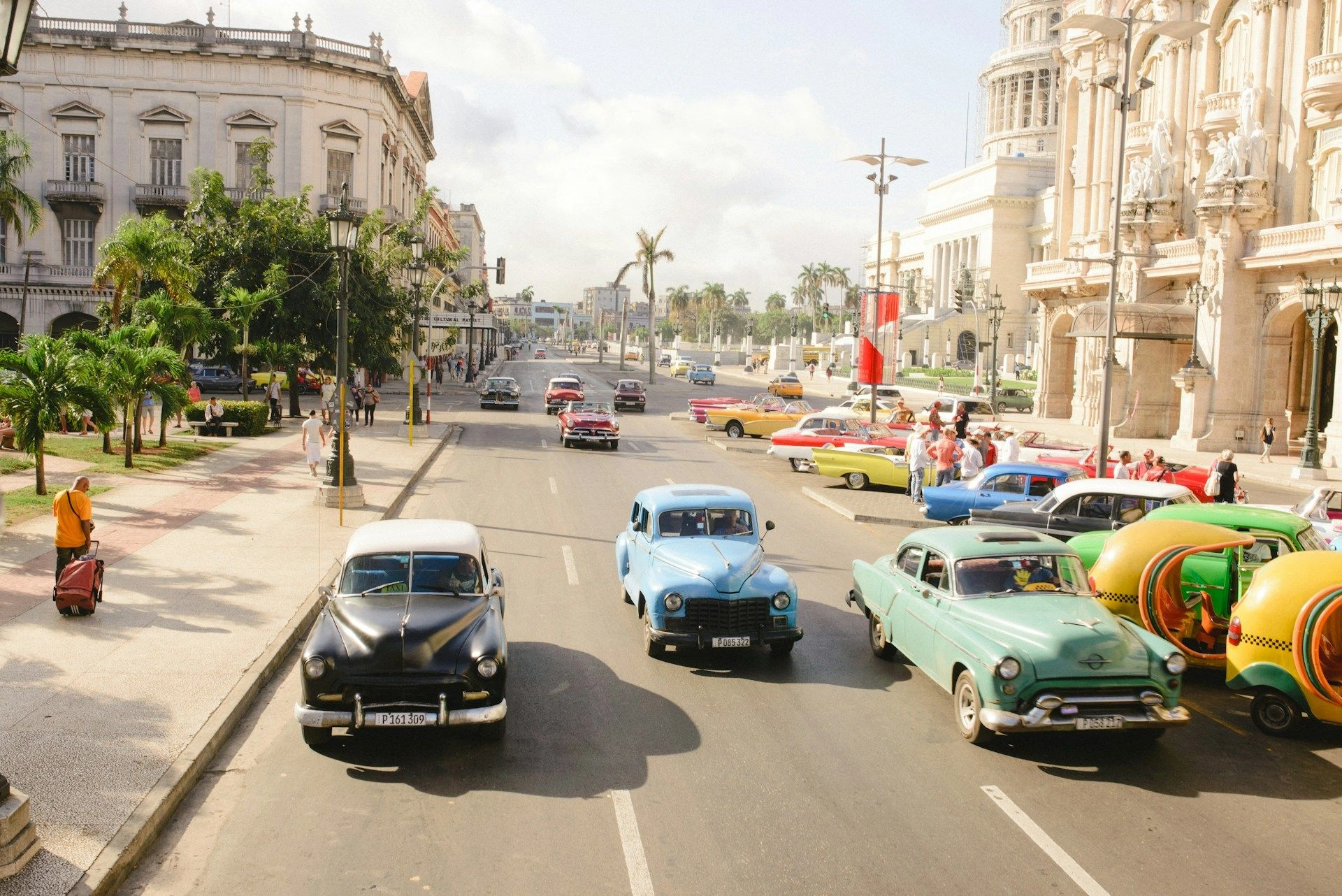Havana Investment Property ListingsStone balconies, music squaresand sea breeze

Best offers
in Havana
Benefits of investment in
Cuba real estate
Historic cities with international interest
Havana and other cultural hubs attract global travelers, creative industries, and investors in tourism infrastructure.
Tourism-driven property formats
Select zones support investment in hospitality-related developments and managed residences.
Ongoing modernization and new market segments
Urban upgrades and international cooperation bring fresh energy to the property landscape.
Historic cities with international interest
Havana and other cultural hubs attract global travelers, creative industries, and investors in tourism infrastructure.
Tourism-driven property formats
Select zones support investment in hospitality-related developments and managed residences.
Ongoing modernization and new market segments
Urban upgrades and international cooperation bring fresh energy to the property landscape.

Useful articles
and recommendations from experts
Real Estate in Havana, Cuba
Why Consider Property in Havana
Havana, the iconic capital of Cuba, is a city rich in history, culture, and architectural beauty. From the colonial charm of Old Havana (Habana Vieja) to the oceanfront boulevards of Malecón and the upscale residences of Miramar and Vedado, the city offers a unique mix of vintage grandeur and tropical vibrancy. However, Cuba’s real estate market is unlike any other in Latin America due to its socialist legal system and evolving property laws. While the market remains limited for foreign investors, Havana’s transformation and growing tourism sector have sparked international interest in future real estate prospects.
Types of Property Available
The property options in Havana vary depending on neighborhood, legal classification, and intended use:
- Colonial homes — Often located in Old Havana, Centro Habana, or Vedado. Many are over 70 years old and require renovation.
- Apartments in residential blocks — Found throughout the city, especially in Soviet-style buildings or mid-century modern towers.
- Villas and standalone houses — In areas like Miramar or Siboney, traditionally home to diplomats or wealthier residents.
- Properties for tourism (casas particulares) — Homes legally authorized to rent rooms to tourists, often located in tourist-heavy districts.
- Co-ownership or inherited properties — Often passed down through families or jointly owned, creating complex legal scenarios.
- Buildings in need of restoration — Particularly in Old Havana, offering architectural value for those with renovation plans.
Legal Framework and Foreign Ownership Restrictions
Unlike most real estate markets in Latin America, Cuba imposes significant limitations on property rights — especially for foreigners:
- Foreigners — In general, foreigners cannot own residential property in Cuba unless they are permanent residents or invest via state-approved joint ventures.
- Cubans and Cuban residents — May legally buy and sell property since 2011 reforms. Transactions must be registered and are only legal between citizens or residents.
- Tourism-related investment — Foreigners may invest in hotels, resorts, or commercial projects, but only via joint ventures with state enterprises.
- No free market pricing — While private sales are permitted domestically, price negotiations are informal, and many properties are over- or under-valued due to lack of financing.
- Property titles and registration — Must be confirmed with the Oficina del Registro de la Propiedad. Many properties have unclear or incomplete documentation.
Property Prices and Market Conditions
The property market in Havana operates largely outside of formal banking or financing systems. Transactions are typically in cash and rely on informal negotiations:
- Old Havana apartments: $25,000 – $100,000+ depending on location, size, and restoration level
- Homes in Vedado or Miramar: $70,000 – $250,000+ depending on condition, number of rooms, and access to amenities
- Casas particulares (licensed B&Bs): $40,000 – $120,000 depending on tourist demand and location
- Large villas (Siboney): $150,000 – $500,000+ for rare, state-approved properties
Tourism-Linked Investment Opportunities
While owning residential property is restricted, tourism-related ventures offer potential avenues for foreign investors:
- Casas particulares — Foreigners married to Cubans often invest in B&Bs, which can legally operate under the Cuban partner’s name.
- Boutique hotels and hostels — In joint ventures with Cuban state-owned companies like Gaviota or Gran Caribe.
- Restaurants and guest services — Often attached to residential buildings and operated as family businesses.
- Cultural restoration projects — Some international foundations partner with the Office of the Historian in Havana for architectural preservation.
- Commercial leases in hotel complexes — Limited but possible through arrangements with tourism management groups.
Top Areas in Havana for Real Estate
Key neighborhoods in Havana with property interest include:
- Old Havana (Habana Vieja) — UNESCO World Heritage zone with cobblestone streets, plazas, and heritage buildings. Tourist hotspot.
- Vedado — Cultural and educational district with art deco buildings, theaters, and tree-lined avenues.
- Miramar — Upscale zone with embassies, international schools, and modern homes. Preferred by diplomats and expats.
- Siboney — Gated and exclusive, with spacious villas often reserved for high-ranking officials or foreign dignitaries.
- Centro Habana — Affordable, densely populated, and close to Malecón; popular among locals and backpackers.
Challenges and Considerations
Investing in Havana real estate comes with notable challenges:
- Legal risk — Property rights are subject to political will, with little recourse in the case of disputes for foreigners.
- Lack of financing — No mortgages or bank loans for real estate. All deals are cash-based.
- Property condition — Many buildings are deteriorating due to lack of materials and decades of deferred maintenance.
- Title clarity — Due to decades of state control, many homes lack clear or clean legal titles.
- Currency fluctuation — Official exchange rates and dual-currency systems can affect returns and operating costs.
- Resale restrictions — Foreign-owned property (where allowed) may not be freely sold or inherited without additional approvals.
Conclusion: Who Should Invest in Havana
Havana’s real estate market is unique — a mix of opportunity, restriction, and speculation. It is best suited for:
- Foreign nationals with family ties or residency in Cuba
- Investors aligned with state tourism agencies
- Buyers of heritage property for cultural or preservation reasons
- Entrepreneurs in the hospitality sector working in partnership with Cubans
